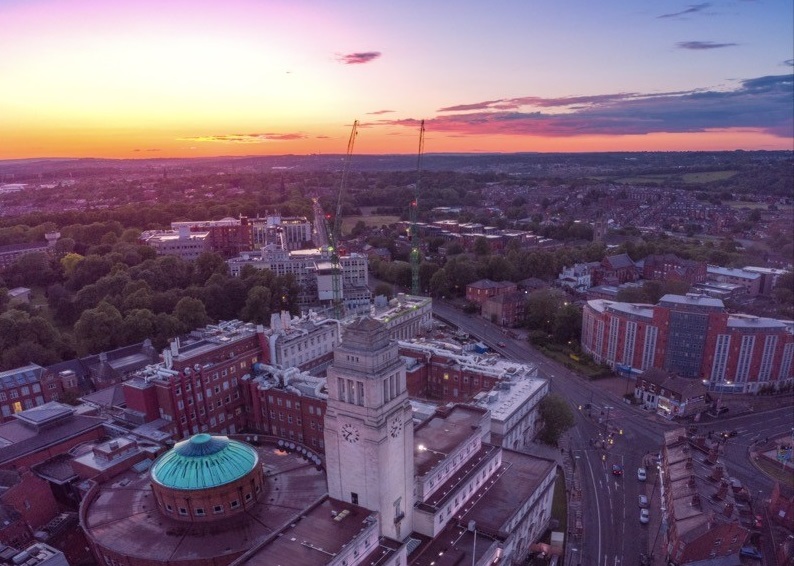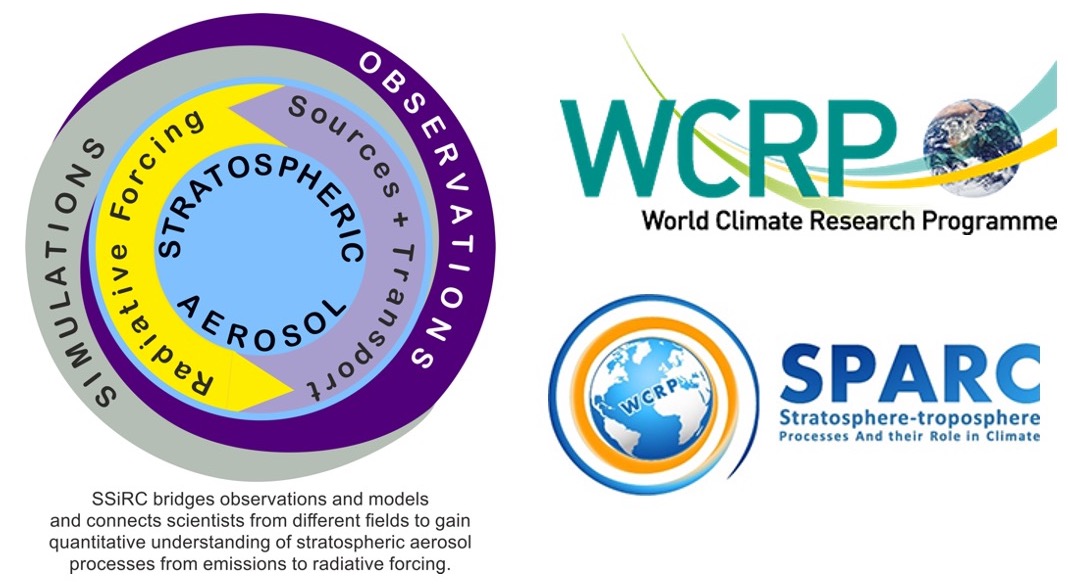| row-start col-md-7 #top-section top-section new-section |
Stratospheric Sulfur and its Role in Climate (SSiRC)
The overarching aim of SSiRC is to foster collaboration across observational and modelling groups to better understand the stratospheric aerosol layer and the drivers for its observed variations.
Outside of volcanic periods, the layer is an optically thin veil of aerosol, with a small but well characterized impact on climate, but after explosive volcanic eruptions, it intensifies dramatically.
Such abrupt volcanic enhancements of the stratospheric aerosol concentrations cause strong solar dimming and thereby surface cooling with important changes in circulation and atmospheric composition in response.
SSiRC is an established SPARC (Stratosphere-Troposphere Processes and their role in Climate) activity, with SPARC being a core project within the World Climate Research Program (WCRP).
Outside of volcanic periods, the layer is an optically thin veil of aerosol, with a small but well characterized impact on climate, but after explosive volcanic eruptions, it intensifies dramatically.
Such abrupt volcanic enhancements of the stratospheric aerosol concentrations cause strong solar dimming and thereby surface cooling with important changes in circulation and atmospheric composition in response.
SSiRC is an established SPARC (Stratosphere-Troposphere Processes and their role in Climate) activity, with SPARC being a core project within the World Climate Research Program (WCRP).
May 2022 SSiRC workshop (Univ. Leeds, U.K.)
The meeting’s focus will be on observations and modelling of the stratospheric aerosol layer and its sources and, particularly, to understand volcanic impacts on stratospheric composition and climate.
There are 6 specific themes for the May 2022 SSiRC workshop:
• Measurements and modelling re: the Jan 2022 Hunga-Tonga eruption
• Stratospheric aerosol from intense wildfires and other recent eruptions (e.g., Raikoke).
• Observations or model case studies re: field campaigns (e.g. StratoClim, AToM and ASPEN).
• Studies aligned with community modelling activities (e.g. ISA-MIP, VolMIP and GeoMIP).
• Research from related science programs (e.g. OCTAV-UTLS, CCMI, PAGES and VICS).
• Measurements and modelling of non-sulfate aerosol and aerosol precursors such as SO2, OCS.
There are 6 specific themes for the May 2022 SSiRC workshop:
• Measurements and modelling re: the Jan 2022 Hunga-Tonga eruption
• Stratospheric aerosol from intense wildfires and other recent eruptions (e.g., Raikoke).
• Observations or model case studies re: field campaigns (e.g. StratoClim, AToM and ASPEN).
• Studies aligned with community modelling activities (e.g. ISA-MIP, VolMIP and GeoMIP).
• Research from related science programs (e.g. OCTAV-UTLS, CCMI, PAGES and VICS).
• Measurements and modelling of non-sulfate aerosol and aerosol precursors such as SO2, OCS.
Abstract submission & registration opens Friday 4 March 2022
Abstract deadline = Tues 29 March 2022.
Invited Speakers
Pengfei Yu (Jinan Univ., China) – Stratospheric warming and ozone destruction by the 2019/20 Australian wildfire smoke
Ghassan Taha (NASA GSFC, USA) – Tracking the Jan 2022 Hunga-Tonga aerosol cloud using space-based observations
Gabi Hegerl (Univ. Edinburgh, U.K.) –Climate change attribution re: the early 20th century warming
Anja Schmidt (DLR/LMU - Munich, Germany) – Opportunities and challenges in quantifying the climate response to a volcanic eruption in near-real time
Karen Rosenlof (NOAA, USA) – A rapid response to the Hunga-Tonga eruption; the Tonga Rapid Response Experiment (T2REx)
John Plane (Univ. Leeds, U.K.) – Ablation rates of organic compounds in cosmic dust, meteoric fragmentation and atmospheric impacts
Limited funding is available for Early Career Researchers (ECRs), to partly cover travel expenses to attend the workshop, with priority given to applications from the Global South.
| col-sm-12 col-md-5 row-end top-80 |

| col-sm-12 col-md-5 row-end top-80 |



